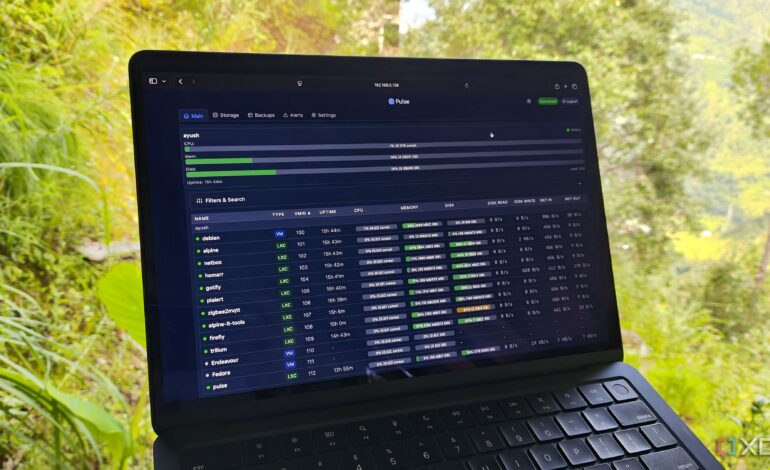Discover 6 LXCs to Maximize Your Proxmox Home Lab Efficiency

Containerization and virtualization are pivotal in enhancing home lab experiences, especially for those running self-hosted applications. By leveraging Lightweight Containers (LXCs) rather than traditional virtual machines (VMs), users can significantly reduce resource overhead, particularly on older hardware. This article highlights six LXCs that can effectively cover up to 90% of typical Proxmox home lab usage.
Efficient Choices for Home Labs
LXCs are particularly advantageous for those with limited computational power. For instance, an old laptop can be transformed into a functional Proxmox host, enabling smooth performance through LXCs instead of resource-heavy VMs. Users have reported that a limited number of well-chosen LXCs can provide essential services without taxing system resources.
Debian is a standout choice for many users due to its stability and compatibility. Although it may lack some of the experimental features found in other distributions, its reliability makes it ideal for a variety of applications. Those looking to explore Docker or similar technologies can benefit from deploying Debian-based LXCs. Furthermore, adding functionalities such as Tailscale or hosting workstations like Code Server can enhance its utility.
Containerization Platforms and Specialized Applications
For those interested in nested containerization, platforms such as Cosmos, CasaOS, and Runtipi present viable options. Despite initial skepticism regarding nested containers, users have found these platforms to be reliable. Each offers user-friendly web interfaces that simplify management for beginners.
Among these, Cosmos stands out for its customizable app repositories and streamlined network management. It also features a built-in cron scheduler, enhancing its appeal to container enthusiasts. Meanwhile, CasaOS includes a file explorer, facilitating file-sharing tasks, while Runtipi’s minimalist design caters to users who prefer simplicity.
NextcloudPi is another LXC worth considering, particularly for users needing personal cloud solutions. Although some users have transitioned to virtual machine instances due to sluggish performance with extensive document uploads, NextcloudPi remains a solid option for those with limited resources. Its built-in app store allows for easy enhancements, turning it into a powerful tool akin to Microsoft 365 when paired with applications like Collabora Online.
Home Assistant is widely praised within the smart home community for its compatibility with a plethora of devices and robust automation features. However, it should be noted that the LXC version lacks access to the Add-on Store, which may require additional setup using a separate container platform to run integrated services.
In the realm of server management, Pulse is a utility designed specifically for Proxmox, offering insights into resource consumption and uptime of both VMs and LXCs. Its ability to connect to Proxmox Backup Server for snapshot records is a notable feature, complemented by its intuitive user interface.
For data sharing needs, OpenMediaVault serves as a lightweight solution suitable for weaker devices. Although deploying OpenMediaVault as an LXC can introduce complexities when managing advanced workloads, it remains a practical choice for users seeking basic file-sharing capabilities.
In conclusion, those operating a Proxmox home lab will find that a combination of LXCs can effectively meet a wide range of needs. While LXCs offer numerous advantages, users with more demanding tasks might still benefit from deploying a few dedicated VMs, utilizing full-fledged distributions like Debian, Arch Linux, or Fedora for resource-intensive projects. As home lab setups continue to evolve, the flexibility offered by these LXCs ensures a robust foundation for experimentation and self-hosting.






